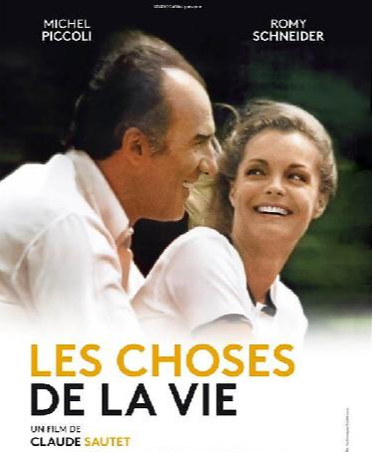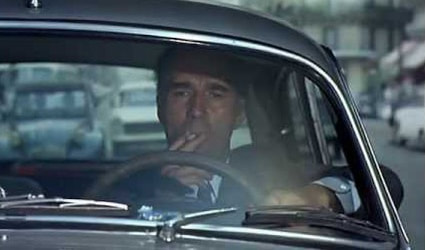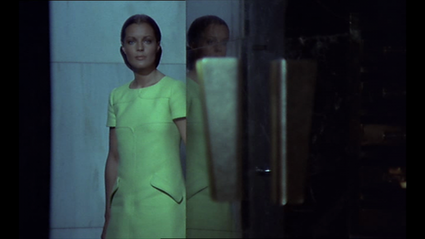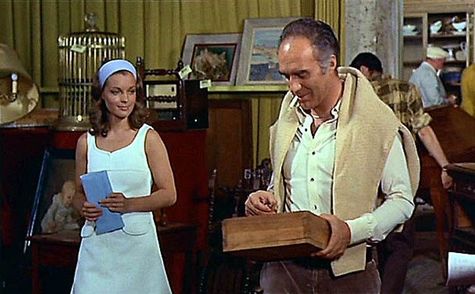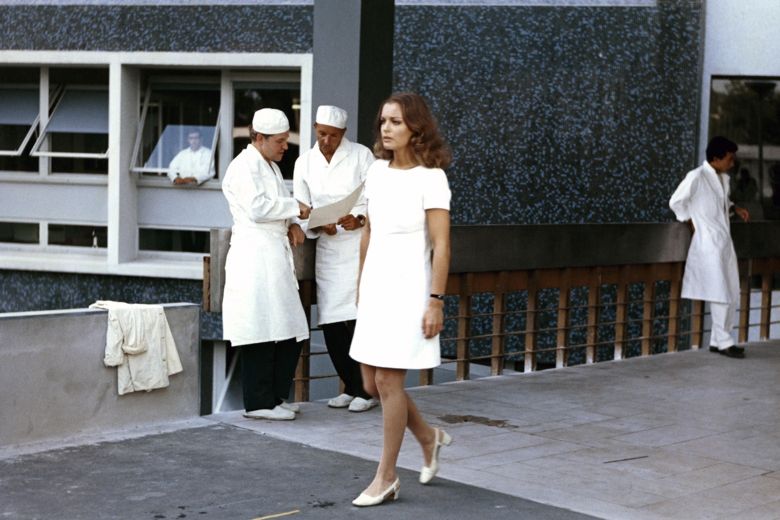|
« Tu m’aimes parce que je suis là ».(you love me because I am here) Hélène (played by Romy Schneider)his mistress says to him in the car. They just leave a party. She wears a short white sleeve dress, he says nothing. « Je suis fatigué, fatigué de t’aimer. » (I'm tired, tired of loving you) She continues, he still says nothing. And somehow, during her long monologue, he decides to end it. « Mais comme ca, sans rien.. » (But not like this, without anything else). She is shocked and she protests. « Tu sors? » he asks her, two times, when he stops the car in front of her house. « Tu n’as rien à me dire? » Hélène finally decides to get out of the car, but she is still trying. « Non » he smiles at her. « Tu m’a appèleras? » (Will you call me?) She is already out of the car, but she does not want to give up. « Bien sûr. »(Of course.) he smiles again. She walks away, he sits in the car, uses one cigarette to light the new one, throwing the old butt out of the window, then drives away, all seen by Hélène who reappears behind the column beside the gate of her home. It seems French directors are specialized in filming the abstract, the indescribable "choses dans la vie" (things in life), like love, like ennui, like the state in and out of life. Claude Sautet is one of them, one of the best of them. He does not belong to the most internationally acclaimed new wave crop, but I think he is greater than all of them. He has that extraordinary sense of time, silence, the meaning pregnated by silence between people, and expresses it beautifully, discreetly. And he knows how a dream can and should look like, and ilusions: Toward the end of his life, struggling between life and death, Pierre´s thoughts go to Helene, he hangs a pair of cherry on her ears, then kisses her behind her ears, taking the cherries, then kisses her. she is wearing white dress, they are getting married, all the family sitting on one side of the table, his son, his father, his friends, her family, then at the head of the table, sitting his ex wife Katherine and her lover. Pierre smiles, happy, until he gazes at another side of the large table, sitting there the police men, the truck drivers, the priest, the paramedics...people he met earlier at the site of his accident.....And children, joyful children, children who he saw on the road prior to the accident in a real wedding ceremony, also part of the ceremony, are starting to leave his wedding, and he is starting to leave his life... According to Philippe Sarde, the composer of the film, he also composed a song called chanson de Hélène, with the lyrics by Jean-Loup Dabadie who also writes the screenplay of the film, and sung by Romy Schneider and Michel Piccoli, but Claude Sautet did not want to use it, afraid that it will "faire vieillir" the film, make it look aged or outdated. Unlike Un cœur en hiver, Claude‘s timeless masterpiece more than 20 years later, Les choses de la vie does show the traces of its time period: the surroundings, the men’s shirts with very sharp tipped collars, women’s too thick makeup, in particular Romy Schneider’s dresses designed by André Courrèges. Romy Schneider is one of the few rare women who managed to look elegant, look like a woman in those colorful Lolita style A line mini dresses too high above the knee, but the film thus evokes unmistakably the youth quake and the 60’s…. But Claude achieved something else in this film: the poetic and perhaps unavoidable sadness of love, the unpredictable mystery of love created by fate, like an unread letter, like the letter written by Pierre just before his death to Hélène which will never be read by her.
Comments are closed.
|
Archives
July 2023
|
